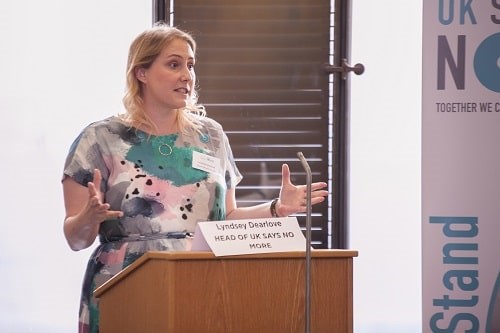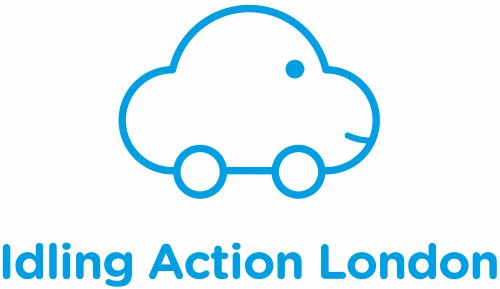Throughout the Covid-19 pandemic, we have been told to stay at home. For millions of us though, home isn’t a safe place.
Opinion
Domestic abuse – employers can provide support
Every year, more than 2.4 million adults in England and Wales experience domestic abuse, according to the Office for National Statistics. However, this year, that already astonishing number will have undoubtedly increased.
Through lockdown, victims became isolated with their abusers, stuck at home and cut off from their support networks. In the first months of lockdown, downloads of the domestic abuse app Bright Sky rose by nearly 50 per cent. There was a near 40 per cent rise in people needing to access Hestia’s domestic abuse support services.
 Lyndsey Dearlove, Head of domestic abuse prevention at Hestia
Lyndsey Dearlove, Head of domestic abuse prevention at Hestia
As we enter 2021 and home working continues for many of us, employers hold a crucial role in supporting their employees at risk of domestic abuse. We spend a third of our lives at work, so whether remotely or not, businesses have a window of opportunity to ensure staff at risk can access the support they need.
Most businesses acknowledge the role they should play; 86 per cent of employers think they have a duty of care to support staff experiencing domestic abuse, according to research carried out for the Vodafone Foundation’s toolkit on domestic violence and abuse for employers. However, the reality is that most organisations simply don’t know how. Just one in 20 businesses have a domestic abuse policy in place, reports the Vodafone Foundation.
Without this culture of support, there is a culture of silence. Fewer than one in three people experiencing domestic abuse disclose their situation at work, according to a TUC survey from 2014. This can have catastrophic results for both employee and employer, with many victims losing their job due to the impact abuse can have on their work, and UK businesses footing the £1.9 billion cost every single year, according to Public Health England and Business in the Community.
Creating a work culture where employees feel able to disclose domestic abuse is not a necessarily massive task. It starts with talking. Use your business’s digital channels – emails, intranet, internal newsletters – to share information about national and local helplines and other means of support, such as the UK SAYS NO MORE’s Safe Spaces scheme in thousands of UK pharmacies.
By simply acknowledging that domestic abuse could be happening within your workforce, you are already opening that door for someone to disclose their experiences.
If an employee does come forward, it’s important that staff members know the correct actions to take: believe them, respond with compassion and refer them to specialist support.
We encourage all employers to ask their employees to have the free Bright Sky app – hestia.org/brightsky – on their phone, which provides advice and information on how to support someone enduring domestic abuse, as well as contact information for local and national support services. Hestia’s Everyone’s Business Advice Line also provides free, confidential advice for employers who are looking to respond to a disclosure of domestic abuse.
There are other ways that your organisation can make a difference, too. Having a robust domestic abuse policy in place to outline the actions you will take to support staff, such as paid leave or an advance on wages if someone says they are planning to leave an abusive partner.
The Everyone’s Business programme from Hestia can provide accredited domestic abuse training for line managers and HR teams, while the Employers’ Initiative on Domestic Abuse has built a network of large and small businesses across the UK, all of which share good practice of how they respond to domestic abuse.
Spotting the signs of domestic abuse isn’t easy – even more so in our current digitised worlds away from the office and human contact. It is masked in stigma, prejudice, shame and fear, all of which lead it to become the hidden crime it is. But spotting the signs is still possible, and employers are in a prime position to bring domestic abuse out of the shadows and into the light.
Start by understanding that domestic abuse doesn’t discriminate. It can happen regardless of gender, class, economic status, religion or job role. It can affect anyone.
Look out for behavioural changes. This could be a dip in productivity or a reluctance to engage in online meetings. An employee may appear on edge or uncomfortable during video calls, or they may start taking more sick days. Usually, a gut feeling is correct. If something doesn’t seem right, it probably isn’t.
You can then take the necessary actions to support employees at risk. Offer the option to return to the office, if it feels safe to do so, or give them an excuse to leave the house to complete a task. These little opportunities could be the difference between someone confiding and seeking help or staying silent.
Throughout this year at Hestia, we have heard numerous testaments to the fact that workplaces are often a place of safety. Some of the people we supported took on extra work just to be away and safe from their partner. Others said their colleagues were the only people they had contact with besides their abuser.
Workplaces can be the haven someone needs to get away from the abuse that awaits them at home. They provide a team of colleagues who, perhaps unknowingly, act as a support network.
Despite much of our work happening online, workplaces can still offer this security blanket. The steps to do so are small, but the impact is huge. Because the reality is, when employers respond to domestic abuse, it saves lives.
Lyndsey Dearlove is head of domestic abuse prevention at Hestia.
For more information see:
www.hestia.org
www.eida.org.uk
bit.ly/39xcr03
bit.ly/38KTjMI
OPINION

ISO mental health standard needs a multi-disciplinary approach
By Phil Newton, Pinsent Masons LLP on 01 April 2022

Why your business should act on engine idling
By Jack Alexander, project officer, Idling Action London on 01 October 2021

The air we breathe is all our business
By Nicky O’Malley, director of corporate partnerships, Global Action Plan on 01 June 2023
Businesses have a vital role to play in improving air quality – and the UK’s Clean Air Day on 15 June is a great opportunity for companies to begin or renew their efforts in this area.



